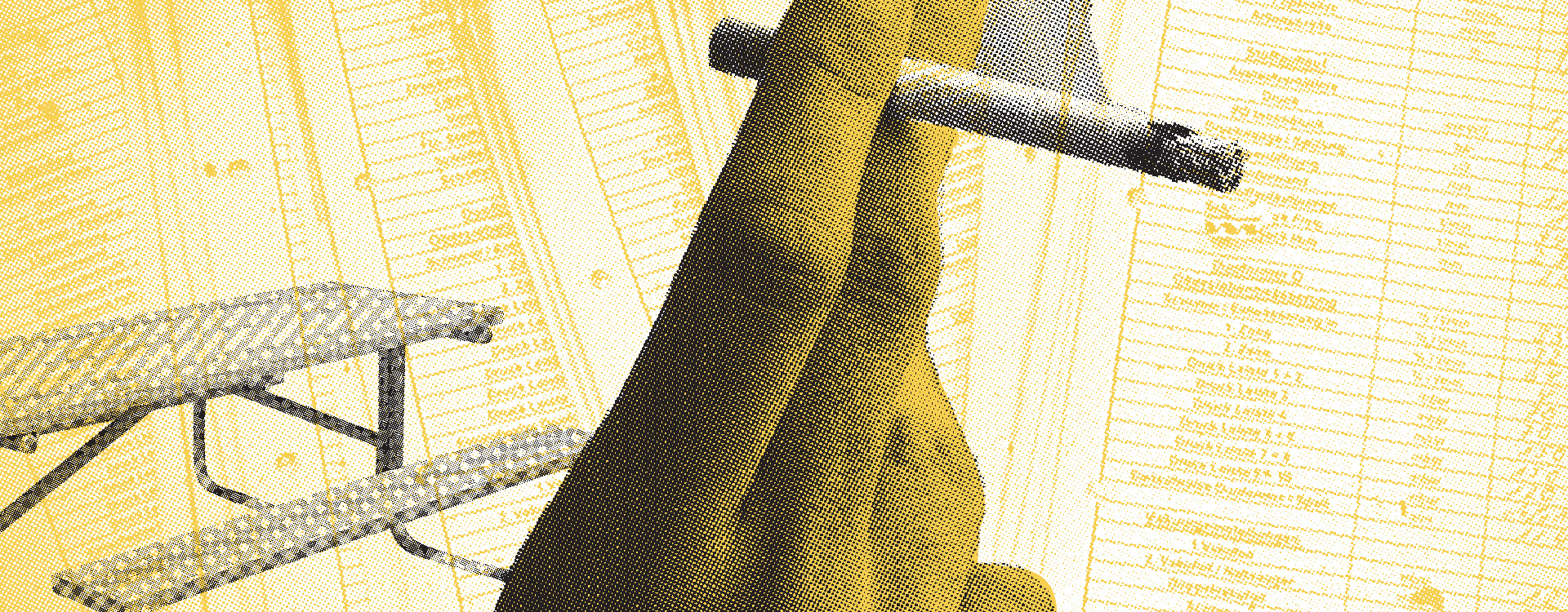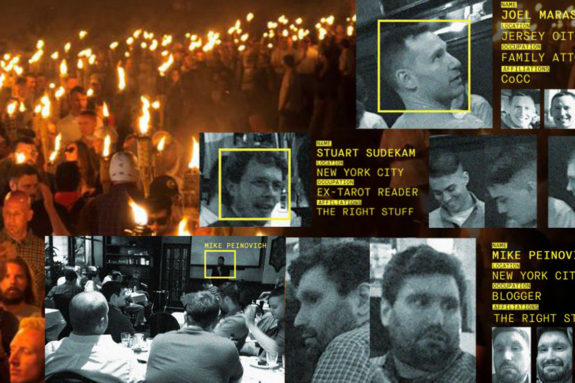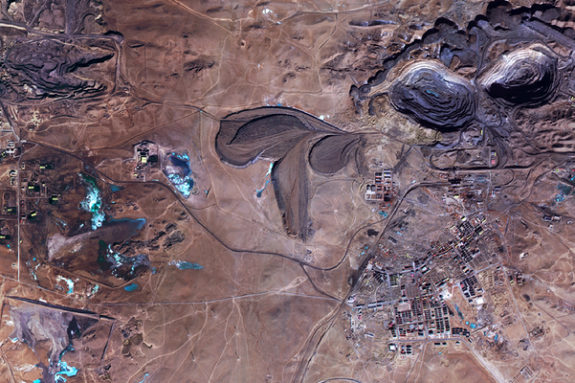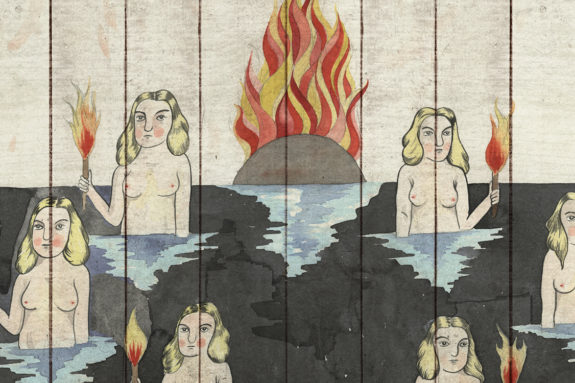Work is the graveyard of dreams.
I was hired when a line cook committed suicide. Hilarie told me this during my job interview. Immediately after my interview, Hilarie and the other owner, her husband Mark, warned me about Jean, the specials chef. “She is miserable and self-pitying and will trap you in her sob stories,” they explained. Then their son told me this too. He went so far as to direct me to put Drano in the rice I set aside for her dog. “An animal does not deserve to live in that degree of squalor,” he said. Jean lived alone, far outside of town. Her land was in Meigs County, outside Athens, in Southeast Ohio. She told me it was impossible for women to hold their own out there: her neighbors terrorized her, her tractor was stolen, the sheriff was in on it. Her bathroom didn’t have running water. The contractors Mark and Hilarie referred her to had cut off the water and abandoned the job before it was finished. Hilarie’s side of things was different. She would tell some weird story about the time they gave her a few hundred dollars for that bathroom and Jean wasn’t even grateful. Meanwhile, Jean washed herself with a bucket in the dead of winter.
Jean was tall. She was vibrant. I fawned over her long silver hair. Once I found a time sheet the owner had made. It logged exactly how many smoke breaks we took and for how long, what we were drinking and who we were with. Everyday we sat together at the table under the surveillance camera, smoking our cigarettes. Under that camera she told me all about the service industry in Athens during the 1980s. How all the big landlords, the millionaires of Athens, got their money selling cocaine. Back then, she reminded me over and over again, she was beautiful, oh how beautiful she was, dancing on the tables after work. She listened to my dreams of starting a land project, and encouraged me to look at some land near hers, though I don’t think it was even for sale. She didn’t want to be alone.
I didn’t either. Jean was one of my only friends at this time. She listened to me talk about the film I was making, and all of my dreams. She had dreams as well. She too wanted to make a film about women in Appalachia. She dreamed of leaving the restaurant to work for someone who saw her as a human instead of trash. Her ideas were better than the bosses and carried visions about how to make her surroundings healthier. She had an idea of making pre-prepared food for some of the local farm-to-table businesses. But she had to wait for her tax return first, to fix her teeth and buy a new outfit for interviews. She was in debt, and only allowed herself to buy cigarettes and DVDs. To get ready for her pre-prepared food service Jean developed a new interest in healthy eating and food as medicine. She sat at her prep table reading nutrition books. Part of what she was doing was trying to heal herself. I had to julienne her vegetables because her hands were so swollen from arthritis. When I imagine the back of the house and my time there I see a jar of preserved lemons next to her Camel Filters, resting on her cold case. Everyone talked shit on her messy station, but there was magic happening there. She was the only cook that would make you anything you desired for your shift meals. As we left, she gave us enough food to last until our next shift. Jean was a reliable resource for all of us. She taught me how to apply for workers’ compensation.
Then there was Dylan. Jean and I called Dylan the company bro. He was a college kid and therefore satisfied with washing dishes for beer money. He got a concussion after a drunk friend knocked him down a concrete hill. I tried and tried to teach him about the seriousness of head injuries. He never covered my shifts, but I picked up his. His requests for time off were so he could be somewhere out with his friend and I will always support not working for this reason. He was charming, and loved to expound on the bad tattoos which peered out from behind the many places where his ridiculous cutoff T-shirts revealed skin. I was jealous that he could expose his armpit hair while I would be reprimanded for doing the same. He rubbed that in. Even though I’m pretty sure he knew I’m gay he often attempted some kind of booty call, which I would lazily fantasize about, as if company bro was some kind of exotic experience.
One day I went into work and he wasn’t on the schedule. My manager was surprised to find out no one told me Dylan had died a week earlier. They said he was found face down on a front lawn with heroin in his system. I thought about the deep gash on his head when he got that concussion. Jean and I were upset. We comforted each other. I lingered by her workspace more than usual. I thought about the revolving door of kids in and out of minimum wage spots in our kitchen. It was a common practice for Hilarie to walk down the street yelling until some local kid agreed to wash dishes. Many were fired for being too strung out to work a grill. There is no secret to our lives: we work, we get fucked up, we work, we die. The possibility of being next lingers in the air. Jean was terrified because death comes in threes. I took all of Dylan’s shifts, washed dishes four nights a week, and line-cooked twice a week.
One night I stabbed my hand with a broken beer glass. The next morning, after I went to the hospital, Hilarie said I was probably due for a tetanus shot anyway, so she shouldn’t have to cover it. The Emergency Room visit cost five hundred dollars: a month’s pay, two paychecks. I thought if I filed for workers’ comp, I’d be fired. I still have debt collectors calling me. When I asked for a raise, Hilarie’s face turned red with anger. She told me she may not have enough money for her vacation in France that year, that she really needed a break. My affinity with Jean didn’t help my case; it was the raise she deserved that Hilarie could not afford. I picked up another job serving hot dogs out of a window from 11 p.m. to 5 a.m. Eventually I was hired at another restaurant that paid me a few dollars above minimum wage. Jean was really supportive of me when I left. Sometimes I would stop by during her shifts to check in. I had to hide how thin and depressed I became under the weight of it all.
That summer I ended up living in a house of food-industry kids, including Michael, who replaced me in the kitchen after I quit. Michael was always carrying a philosophy book in his hand, but the way he cornered me with self-righteous platitudes about my anger made me doubt that he had ever read any of it. He told me Hilarie was right about Jean and she wasn’t even a good cook. I told him to fuck the hell off, that Jean’s value has nothing to do with the food he puts in his mouth, and that his extra payment at the restaurant was on account of his glaring lack of critique, the luxury of moving through the world without dark energy. Later that summer he told me Jean wasn’t working because she broke her leg. I told him she would die soon because under capitalism excess bodies who fall too weak from decades of labor and start breaking their bones are no longer useful and are left to die. I was right. Jean was replaced. I moved away.
There was no one in my life that knew Jean as I knew her. She could say the same for me. In the fall, for a few days, I had a strong urge to call her.
A week later Michael called to tell me she died of a heart attack. I think I felt that urge after she had already died.Being against work is a sensible position given the degradation of everyday life. It is an inclination toward something fuller; not only a life beyond subsistence, not only a life worth living, but a life that is worth all the pain of being human. I yearn for my motions, my tasks, my loving, to make death something other than a release from work. I believe in something underneath myself, something that gains power through our proximity to death: the graveyard of wage labor. I haven’t found an obituary for Jean that honors her completeness and her dreams. Instead I have written odes to her in the form of threats against restaurants and joined the funeral parades of those who worked in them.I recall the sound of her voice, hoarse from the challenge of life and the violence of capital. I don’t work in restaurants anymore. Though Jean and Dylan move through my mind every time I handle kitchen knives.





